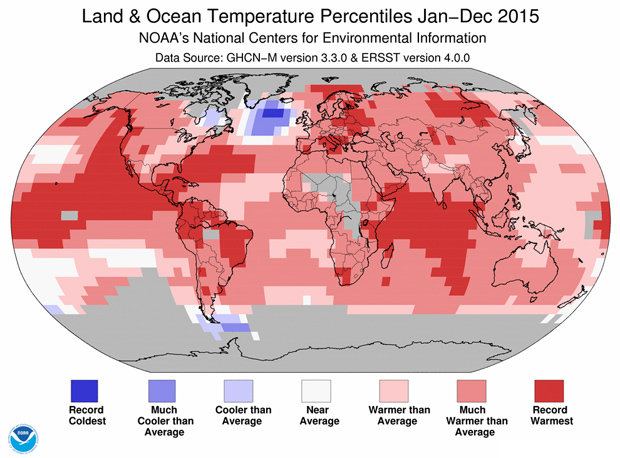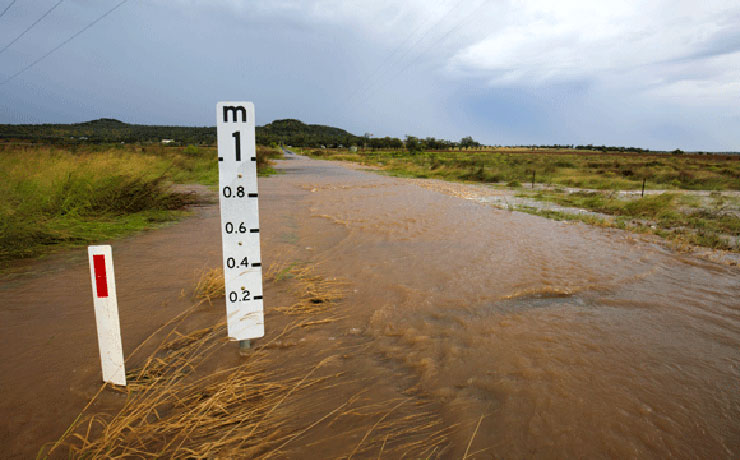
January 25, 2016
Last year was the hottest on record by an astonishing margin, according to a new report by the Climate Council.
Data released this month shows the average temperature across the planet 0.90˚C above the 20th century average, almost 20 per cent higher than the previous highest departure from average.
The Climate Council’s Hottest Year on Record (Again) report, which analyses the data in an Australian context, found 2015 was a horror year for extreme heat, bushfires and storms.
The report also found:
- The average global temperature across land and ocean surface areas for 2015 was 0.90°C above the 20th century average of 13.9°C, beating the previous record warmth of 2014 by 0.16°C.
- The 2015 temperature marks the largest margin by which an annual temperature record has been broken. Prior to this year, the largest margin occurred in 1998, when the annual temperature surpassed the record set in 1997 by 0.12°C.
- At 1.11°C higher than the monthly average, December was the first time that a monthly temperature departure from average exceeded 1°C and the second widest margin by which an all-time monthly global temperature record has been broken.
- Overall, global annual temperature has increased at an average rate of 0.07°C per decade since 1880 and at an average rate of 0.17°C per decade since 1970.
The Climate Council’s Professor Will Steffen said the climate was sending an alarming wake-up call.
“The sheer number of records broken in 2015 is staggering and is more clear evidence of a climate on steroids,” Prof Steffen said.
“This marks the fourth time in the 21st century a new record high annual temperature has been set and also marks the 39th consecutive year that the annual temperature has been above the 20th century average.
“Record sea surface temperatures are triggering the world’s third ever mass coral bleaching event. The Great Barrier Reef has already suffered several coral bleaching events since the 1970s and is at risk again as the sea surface temperatures around Australia remain well above average.
“Unseasonably early heatwaves across the country, driven by climate change and the strong El Nino event, caused an early outbreak of the bushfire season and drove major agricultural losses as large areas of crops failed and had to be cut for hay.
“The cost of these losses is expected to be in the order of $1-2 billion in Victoria alone.
“Internationally, severe heatwaves in India and Pakistan have led to death tolls in the thousands and similarly severe heat has driven the worst bushfire season in the United States in living memory with more than 50,000 fires, including one in California that grew seventy-fold in a matter of hours.”
Climate Council CEO Amanda McKenzie said Australia was staring down the barrel of what a future with climate change looks like: more bushfires, more heatwaves and more devastating impacts on Australians.
“And yet despite Australia being one of the most vulnerable countries to the impacts of climate change, not only is Australia at the bottom of the OECD countries in terms of our emission reduction pledges, we are struggling to meet even this weak level of ambition,” she said.
“Our emissions are still going up and Australia’s renewable energy industry is still stagnant after the Renewable Energy Target was cut.
“If we are serious about protecting Australians from worsening extreme weather events and doing our part in the global effort to bring climate change under control, we urgently need a clear national plan for reducing emissions rapidly and transitioning to a low-carbon economy. Coal cannot be part of that plan.”























